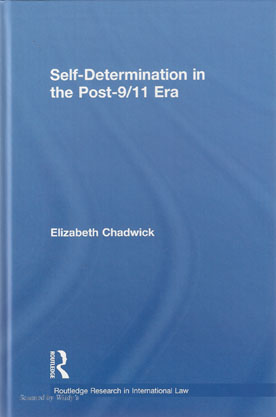
The issue of self-determination is often thought about and discussed in terms of the post-1945 framework which attempted to balance a stable vision of state sovereignty and territorial integrity alongside the principle of the self-determination of ‘peoples’.
This implied that perhaps self-determination should be realisable within contexts of domestic state political process, multi-culturalism, and/or democratic representation. However, in the last decades there has been a shift in geo-political balance regarding the ‘power to choose’ those ‘causes’ deemed more justifiable in terms of force used to achieve liberation goals.
This book takes the ten-year anniversary of 9/11 as a timely point at which to review the impact on the theory and practice of self-determination caused by wider anti-terrorist action and a growing disregard of the laws of armed conflict.
The book will set out in detail the altered attitudes to violent struggles for self-determination. It will introduce the growing international disquiet in the face of increasing religious fundamentalist violence, the changing nature of international terrorist actors, and the expansion in justifications for violent liberation struggles.
The book will look at specific examples of when the international community has chosen to intervene, and those in which it has not in order to reach conclusions about the continued viability of self-determination within the larger context of non-interference, territorial integrity and political independence.